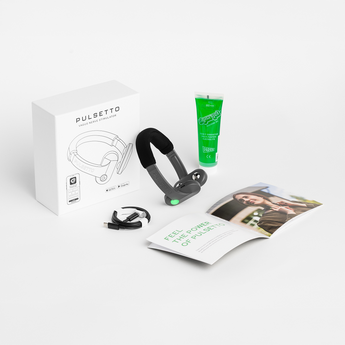Holy Basil, also known as Tulsi, is an ancient herb revered for its medicinal and spiritual properties. It has been used for centuries in traditional Indian medicine to promote health and well-being. One of its most recognized benefits is its ability to reduce stress and improve sleep quality.
However, while Holy Basil is generally safe, it may not be suitable for everyone due to potential side effects and interactions with other medications. This article explores Holy Basil's benefits and risks, and introduces alternatives like Pulsetto for those seeking stress-free sleep solutions without the need for herbal supplements.
Try Pulsetto Today!
Click here to learn more about Pulsetto and how it can help you achieve better sleep.
What is Holy Basil?

Holy Basil is an adaptogenic herb, meaning it helps the body adapt to stress and restore balance. It contains compounds like eugenol, camphene, and cineole, which are believed to have antimicrobial, antiviral, and anti-inflammatory properties. These properties contribute to its potential health benefits, including:
-
Stress and Anxiety Reduction: Holy Basil is known to lower cortisol levels, helping to regulate stress and anxiety.
-
Improved Sleep: By reducing stress, Holy Basil can aid in achieving better sleep quality.
-
Respiratory Health: It may help alleviate respiratory issues by opening airways and reducing inflammation.
-
Dental Health: The antibacterial properties can help reduce plaque and prevent periodontal diseases.
However, Holy Basil may not be suitable for everyone, especially pregnant women or those with certain medical conditions, due to potential side effects like nausea, diarrhea, and interactions with medications.



























































